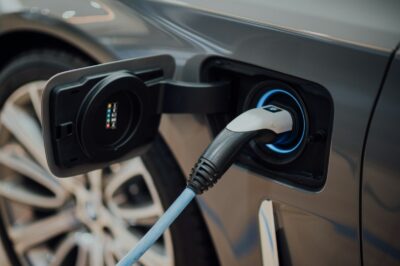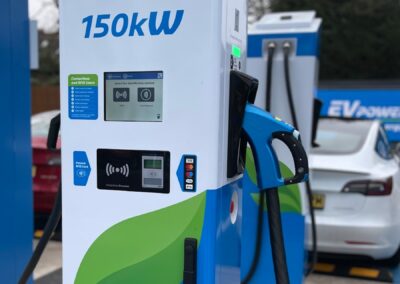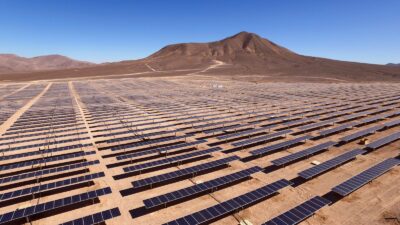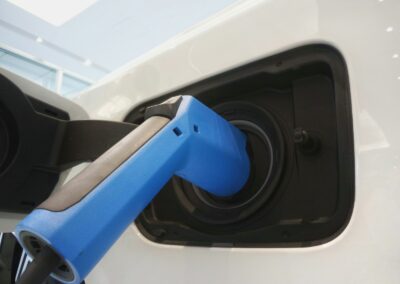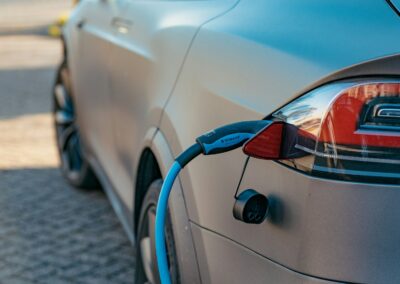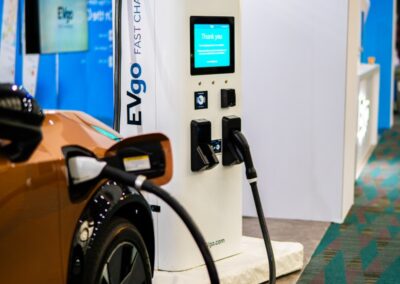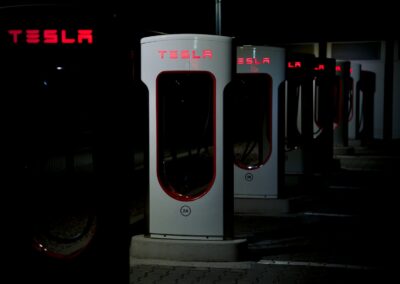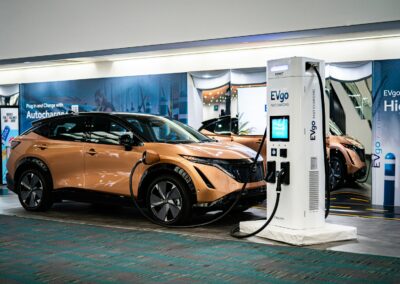How Solar-Powered Charging Stations Are Transforming Electric Vehicle Infrastructure
Introduction to Solar-Powered Charging Stations
Solar-powered charging stations are playing a pivotal role in the heart of this transformation, . These stations utilize the abundant solar energy available in regions like Saudi Arabia and the UAE to provide a renewable source of power for charging electric vehicles. This initiative not only supports the environmental goals of reducing carbon emissions but also aligns with the strategic vision of these countries to enhance their technological and energy independence.
Strategic Benefits for Business and Economy
The integration of solar-powered charging stations is fostering significant opportunities for business growth and economic prosperity in the Middle East. By reducing reliance on fossil fuels, businesses can decrease operational costs and increase their competitiveness in the global market. Additionally, this shift encourages local industries to innovate and develop new technologies, further strengthening the economic landscape. Governments are also supporting this transition through incentives and policies that make investments in solar-powered infrastructure more attractive, thereby accelerating the adoption of electric vehicles across the region.
Supporting Sustainable Development Goals
Utilizing solar energy to power electric vehicle charging stations directly contributes to the Sustainable Development Goals (SDGs) set by the United Nations. Specifically, it promotes affordable and clean energy, sustainable cities and communities, and responsible consumption and production patterns. By investing in such technologies, Saudi Arabia and the UAE are not only advancing their infrastructure but are also setting a benchmark for sustainable development in the region, inspiring other nations to follow suit.
Leadership in the Global Energy Transition
The commitment of Saudi Arabia and the UAE to integrating solar-powered charging stations into their urban infrastructure is a testament to their leadership in the global energy transition. These countries are not just participants but are leading the way in creating a sustainable future. The strategic location of these nations harnesses one of their greatest assets—abundant sunlight—turning it into a sustainable power source for the burgeoning electric vehicle market.
The Role of Public-Private Partnerships
Public-private partnerships are crucial in scaling the deployment of solar-powered charging stations. By collaborating, government entities and private companies can leverage their unique strengths to accelerate the development of necessary infrastructure. This cooperative approach ensures a swift and efficient rollout, benefiting both the economy and the environment. Moreover, these partnerships are instrumental in driving innovation, leading to advancements in technology that make solar-powered charging more efficient and accessible.
Looking Towards a Greener Future
As the world moves towards a greener future, the integration of solar-powered charging stations for electric vehicles is a shining example of how technology and renewable energy can come together to create sustainable solutions. This development not only supports the expansion of electric vehicle usage but also promotes a cleaner, more sustainable environment for future generations. With ongoing investments and innovations, the potential for solar-powered charging infrastructure is limitless, promising a brighter and more sustainable future for all.
Enhancing Energy Security and Independence
The strategic implementation of solar-powered charging stations significantly enhances energy security and promotes independence from non-renewable resources. In Saudi Arabia and the UAE, where sunshine is plentiful, leveraging solar energy represents a prudent shift towards self-sufficiency in energy production. This transition not only mitigates the risk associated with volatile fossil fuel markets but also supports national agendas focused on long-term sustainability and energy diversification. By investing in solar-powered infrastructure, these nations are securing their energy future and establishing a resilient economic framework that is less dependent on external energy sources.
Empowering Communities and Fostering Innovation
Solar-powered charging stations do more than just provide energy; they serve as catalysts for community empowerment and technological innovation. These facilities create jobs, from construction and maintenance to research and development in renewable technologies, driving economic growth and community development. Furthermore, they offer a platform for local innovators and entrepreneurs to engage with cutting-edge technology, sparking a wave of creative solutions tailored to the unique environmental and societal needs of the region. As these communities embrace renewable energy technologies, they set a global example of how sustainability can be seamlessly integrated into the fabric of everyday life, promoting a healthier, more sustainable future for everyone.
#ElectricVehicles, #RenewableEnergy, #SolarPower, #SustainableDevelopment, #Technology, #SaudiArabia, #UAE, #Innovation, #BusinessGrowth, #EconomicProsperity




